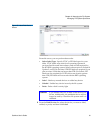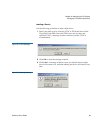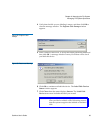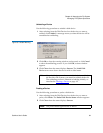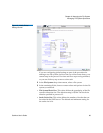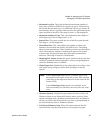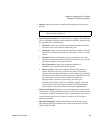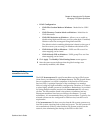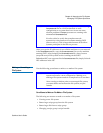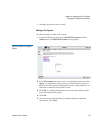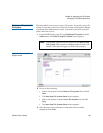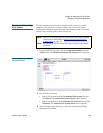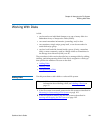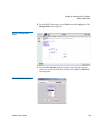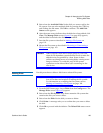
Chapter 6 Managing the File System
Managing File System Operations
StorNext User’s Guide 99
• LDAP Configuration
• UNIX File Creation Mode on Windows - Mode bits for UNIX
files
• UNIX Directory Creation Mode on Windows - Mode bits for
UNIX directories
• UNIX ID Fabrication on Windows - Allows you to enable or
disable using fabricated IDs an a per-file system basis. If enabled,
Windows user IDs are mapped using fabricated IDs.
The default value for enabling fabrication is based on the type of
StorNext server you are using. On Windows the default is No.
• UNIX Nobody UID on Windows - UNIX user ID to use if no
other mapping can be found
• UNIX Nobody GID on Windows - UNIX group ID to use if no
other mapping can be found
4 Click Apply. The Modify Global Setting Status screen appears.
5 After the status screen indicates that the global settings were
successfully modified, click Close.
Working with the
fsnameservers File 6
The SNFS fsnameservers file specifies machines serving as File System
Name Server coordinator(s) to the fsmpm daemon. The File System Name
Server coordinator is a critical component of the StorNext File System
Services (FSS). A principal function of the coordinator is to manage
failover voting in a high-availability configuration. Therefore, it is critical
to select highly reliable systems as coordinators. Redundancy is provided
by listing multiple machine entries in the fsnameservers file, one entry
per line. The first machine listed is the primary coordinator and any
subsequent machines listed serve as backup coordinators. To create
redundancy, it is recommended that you list two machines. Typically, the
selected systems are also configured for FSM services, but this is not a
requirement.
If the fsnameservers file does not exist, then the file system operates as a
local file system, requiring both a client and a server. The file system will
not communicate with any other StorNext File System product on the
network, thus eliminating the sharing of the FSS over the SAN.



